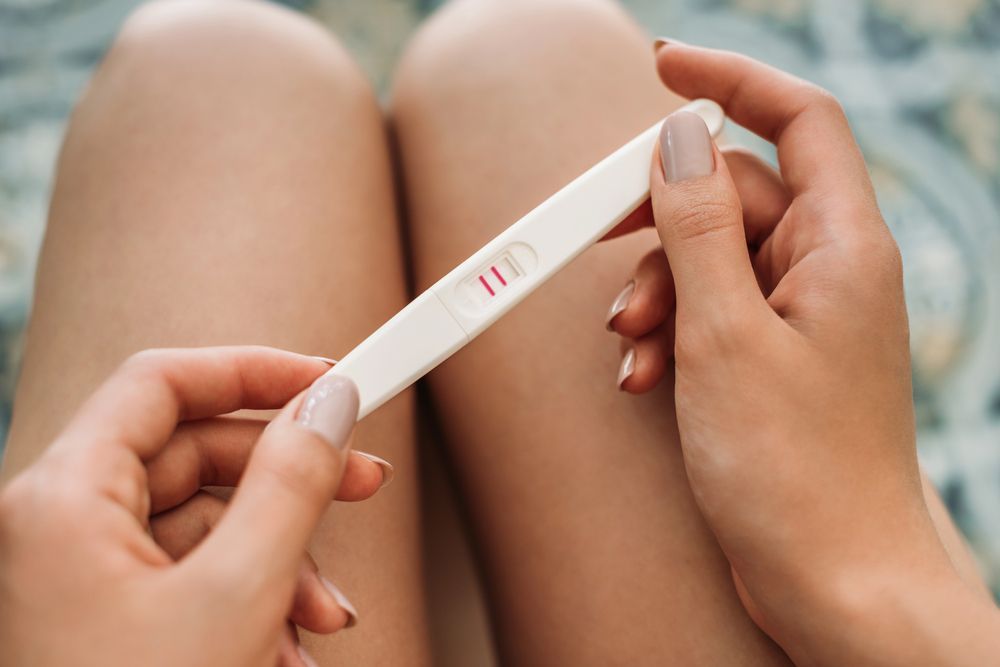When Should I Take a Pregnancy Test?

Understanding the Best Time for Accurate Results
Wondering when to take a pregnancy test can be both exciting and nerve-wracking. Whether you're hoping for a positive result or seeking clarity during an uncertain time, knowing the right moment to test can make all the difference. Testing too early may result in a false negative, while waiting too long can add to the anxiety.
In this blog, we’ll walk you through how pregnancy tests work, the ideal time to take one, and the key factors that can affect accuracy—so you can feel confident and supported, no matter the outcome.
How Do Pregnancy Tests Work?
Pregnancy tests detect a hormone called human chorionic gonadotropin (hCG), which your body begins producing shortly after a fertilized egg implants in the uterus—typically 6 to 10 days after conception.1
There are two main types of pregnancy tests:
- Urine tests (most commonly used at home)
- Blood tests (performed at a healthcare provider’s office)
While both types are effective, blood tests can detect smaller amounts of hCG earlier and with more precision. Home pregnancy tests are very accurate when used correctly and at the appropriate time.
When Is the Best Time to Take a Pregnancy Test?
1. Wait Until the First Day of Your Missed Period
For the most reliable results, it's best to wait until the first day of your missed period. By this time, hCG levels are usually high enough to be detected by most home tests. If you take a test too early, your body may not have produced enough of the pregnancy hormone yet, which could lead to a false negative.
2. Testing Early: What You Need to Know
Some early-detection tests claim to work a few days before your missed period. While they can be helpful, the chance of a false negative is higher if hCG hasn’t built up sufficiently. If you test early and receive a negative result but still suspect you may be pregnant, try testing again a few days later.
3. After a Missed Period: The Most Reliable Time
If your period is late, that’s the most reliable time to take a test. At this point, your hCG levels should be high enough for a clear result. For best accuracy, take the test first thing in the morning when your urine is most concentrated.
4. Blood Tests: Earlier Detection
Blood tests can detect pregnancy earlier—often as soon as 7 to 10 days after ovulation. If you need to know as early as possible or have irregular periods, a blood test ordered by your healthcare provider may be the best option.
What Can Affect Pregnancy Test Accuracy?
Several factors can influence test results, so it’s important to keep these in mind:
- Test Sensitivity: Not all tests detect hCG at the same levels. Read the packaging to understand how early the test can provide results.
- Timing: Testing too early increases the chance of a false negative. Waiting until after a missed period is best.
- Urine Concentration: Testing later in the day or after drinking a lot of fluids can dilute your urine and lower the accuracy. Morning urine is most concentrated.
- Expired or Improperly Used Tests: Always check the expiration date and follow the instructions carefully.
- Medications or Health Conditions: Fertility treatments, recent pregnancies or certain health conditions, such as ovarian cysts, may affect hCG levels, potentially leading to false positives.
What to Do After You Take the Test
If the Test Is Positive
A positive result is a big moment. The next step is to schedule an appointment with your healthcare provider to confirm the pregnancy and begin prenatal care. A follow-up blood test may be recommended to verify the result and check hormone levels.
If the Test Is Negative
A negative result doesn’t always mean you’re not pregnant—especially if you tested early. If your period still hasn’t arrived or if you’re experiencing symptoms of pregnancy, wait a few days and test again. If you continue to get negative results and still have concerns, don’t hesitate to reach out to your doctor. They can help explore other possible reasons for a missed period and guide you through the next steps.
Final Thoughts
Taking a pregnancy test can stir up a range of emotions. Whether you're feeling hopeful, anxious, or somewhere in between, you're not alone. Understanding the timing and factors involved can help you approach the process with more clarity and confidence.
If you ever feel uncertain, Open Arms Pregnancy Clinic is here to offer support and guidance every step of the way.
Sources:
Professional, C. C. M. (2025, May 1).
Pregnancy tests. Cleveland Clinic.
https://my.clevelandclinic.org/health/diagnostics/9703-pregnancy-tests










